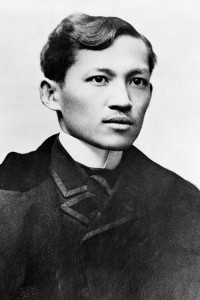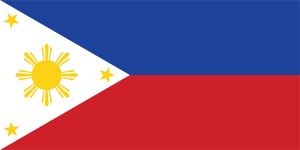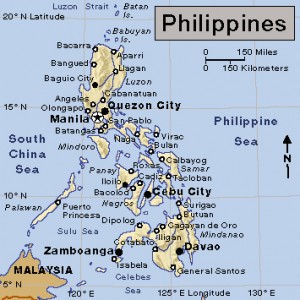José Rizal Day
Monday, December 30th, 2019December 30, 2019
Today, December 30, is José Rizal Day in the Philippines. The holiday celebrates the life of Rizal, a doctor and novelist who became a national hero of the Philippines. Rizal was an early leader of the Filipino movement for political and social freedom from Spain. December 30 marks the day in 1896 when the Spaniards, who ruled the Philippines at the time, executed Rizal for his activities.

The physician and writer José Rizal is a national hero of the Philippines. His life is celebrated on December 30. Credit: Public Domain
A national public holiday, Rizal Day has been celebrated in the Philippines since 1898. Commemorations include the lowering of the Philippine flag to half-mast and wreath laying-ceremonies at the Rizal Monument and execution site in Manila, the Rizal Monument in Baguio City, and the Rizal Shrines in Calamba (a reproduction of his birth house) and Dapitan (his place of exile on Mindanao).

The flag of the Philippines dates back to the Philippine struggle for independence in the 1890’s. Credit: © Loveshop/Shutterstock
José Mercado y Alonso Rizal was born on June 19, 1861, in Calamba on the main Filipino island of Luzon. He studied medicine at the University of Santo Tomas in Manila. After obtaining his qualifications in medicine in Madrid, Spain, Rizal traveled to Germany, England, and France, where he continued to study medicine. He wrote for La Solidaridad (The Solidarity) a magazine published in Barcelona that campaigned for reforms in the Philippines.
Rizal gained worldwide attention with two novels that exposed the ills of the Spanish colonial government and Filipino society: Noli Me Tangere (1887, Latin for Touch Me Not) and El Filibusterismo (1891, The Subversive). While conducting research at the British Museum in London, Rizal came across a history of the Philippines written by Antonio de Morga, a Spanish historian and colonial official, in 1609. Morga’s book described an attractive civilization in the Philippines before Spanish colonization. In 1890, Rizal printed a new edition of the history with his own notes added to the text.
In 1892, Rizal returned to Manila, where he founded La Liga Filipina (The Philippine League) on July 3. The League was a partly secret association devoted to promoting unity and reforming the colony. On July 6, Rizal was arrested and exiled to the Philippine island of Mindanao. During his exile, Rizal practiced medicine and taught students. In 1896, Spanish authorities permitted him to go to Cuba, at that time a Spanish colony, to treat patients infected during a yellow fever outbreak.
That same year, the Katipunan, a secret Filipino revolutionary society, tried to overthrow the Spanish government. Rizal was on his way to Cuba when the revolution broke out. Though he had no connection with the Katipunan or the uprising, a Spanish military court found him guilty of promoting the rebellion. On the morning of Dec. 30, 1896, Rizal was executed by firing squad in Manila.




